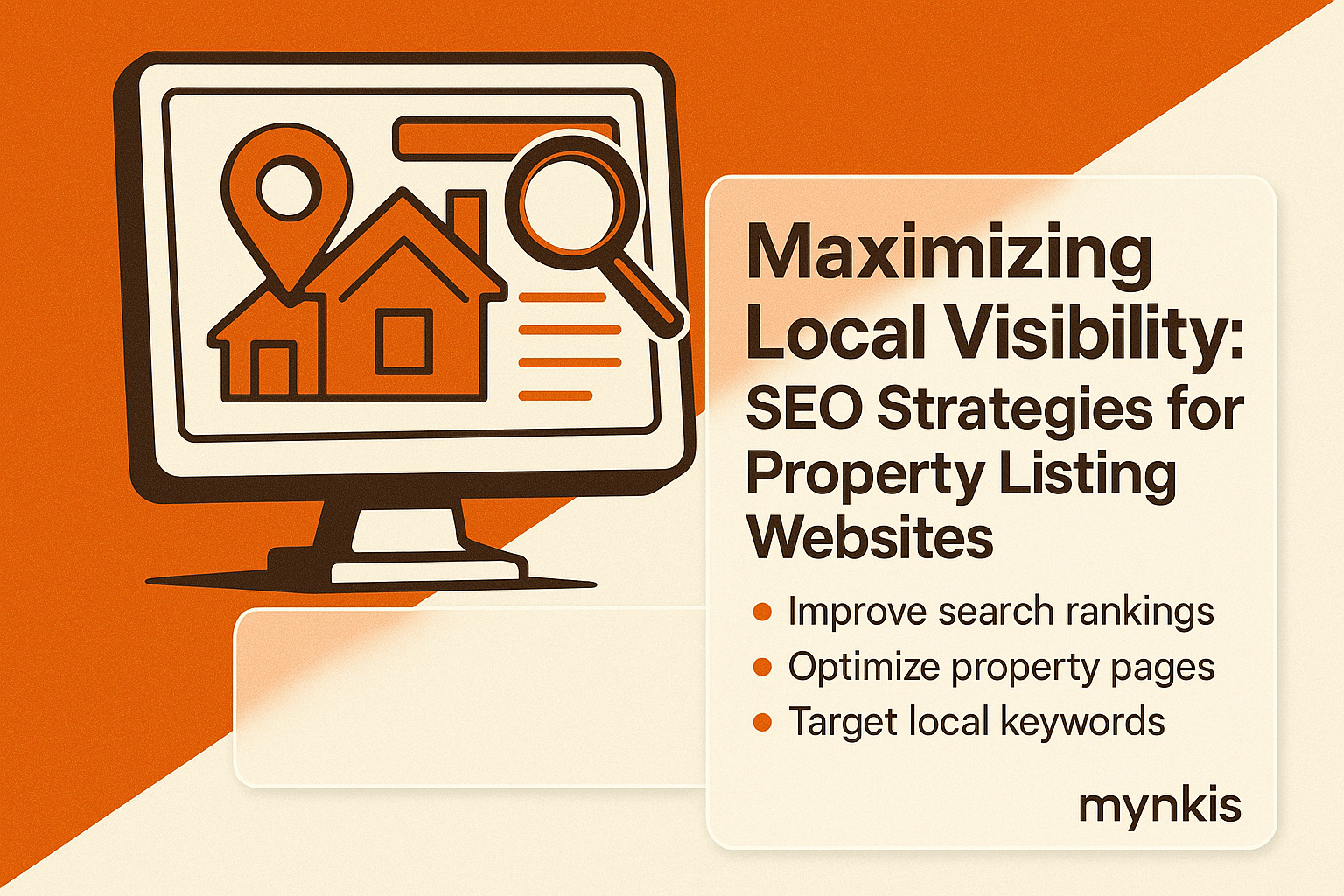Schedule a Demo
SEO, or Search Engine Optimization, is the backbone of digital visibility. For brokers managing property listing websites, understanding SEO is crucial to ensure your listings appear at the top of search engine results for local queries. SEO involves optimizing your website's structure, content, and technical elements to meet search engine algorithms' requirements. This isn't just about stuffing your site with keywords but creating a user-friendly and relevant experience that search engines will reward with higher rankings.
In my work with real estate brokers, I've seen the impact of local SEO firsthand. This strategy zeroes in on local queries, such as “homes for sale in Los Angeles” or “apartments near San Francisco.” By focusing on local keywords and phrases, you can attract potential buyers and renters who are in your immediate area. Local SEO involves optimizing your site for local searches, managing your Google My Business listing, and ensuring accurate and consistent NAP (Name, Address, Phone) details across the web.
Based on available research, individual results may vary, but one thing remains constant: high-quality content improves SEO. For property listing sites, this means creating detailed and engaging descriptions of each property. Include key information like the number of bedrooms, bathrooms, and unique selling points like “walk-in closet” or “ocean view.” High-quality, keyword-optimized content not only boosts your SEO but also enhances the user experience, keeping potential buyers engaged longer.
Keywords are the signposts that guide search engines to your site. For a property listing website, it's essential to research and use relevant keywords throughout your site's content. Utilize tools like Google Keyword Planner to find the best local search terms, such as “condos for sale in San Diego” or “rental properties in Seattle.” Incorporate these into your meta tags, URLs, and content strategically, without overdoing it, to improve your site's relevance to these search queries.
In today's market, a significant number of homebuyers start their search on mobile devices. Thus, optimizing your website for mobile is not just beneficial; it's essential. Mobile-friendly sites rank higher on Google's search results, offering a better user experience. Ensure your site's layout is responsive, your images load quickly, and all elements are easily navigable on smartphones and tablets.
Backlinks serve as votes of confidence from other sites, enhancing your website's authority. Aim to secure high-quality backlinks from reputable real estate blogs, local business directories, and other related websites. For example, a link from a well-known real estate blog discussing the latest housing trends in your area can boost your SEO significantly. Remember, it's not just the quantity but the quality of these links that matters.
Technical SEO might not be glamorous, but it's a cornerstone for achieving better search engine rankings. This includes ensuring your website has a proper site structure with clean URLs, fast loading times, and mobile compatibility. Regularly check for and fix broken links, submit a sitemap to search engines, and optimize your robots.txt file. These technical tweaks lay the foundation for a well-ranked website.
Implementing an SEO strategy without tracking its performance is like sailing without a compass. Use analytics tools like Google Analytics to monitor your site's traffic, understand where your visitors are coming from, and see which keywords are driving the most views. Regular analysis will allow you to adjust your tactics, refine your keywords, and enhance user engagement, ensuring your property listing website continues to climb in search rankings.
A key aspect of SEO often overlooked is the user experience (UX). Websites that provide a stellar UX typically enjoy higher rankings. As a broker, ensure your site is easy to navigate, with clear calls to action and intuitively organized listings. Users who spend more time on your site signal to search engines that they find your content valuable, thereby boosting your SEO performance.
Fresh, regularly updated content is essential for maintaining high SEO rankings. For property listing sites, this means routinely adding new listings, updating sold properties, and possibly creating a blog with articles on real estate trends. Such updates encourage search engines to crawl your site more frequently, ensuring your latest listings appear in search results promptly.
Social media platforms can significantly enhance your SEO efforts. Regularly share links to your property listings on platforms like Instagram, LinkedIn, and X (the new Twitter). Although social media signals themselves don't directly influence SEO, they drive traffic to your site, increase engagement, and can lead to valuable backlinks. Integrating your social media strategy with your SEO can broaden your reach and enhance local listings' visibility.
Schema markup allows search engines to better understand and display your content. For property listing sites, implementing real estate schema can make your listings stand out with rich snippets in search results, showing essential details like price, number of rooms, and photos. This not only improves your site's click-through rate but also boosts your SEO by making your site more informative to users and search engines alike.
Building trust and authority in the eyes of both potential clients and search engines often starts with educational content. Consider creating articles or guides on topics like “how to prepare for a home sale” or “tips for first-time home buyers.” Such content not only serves as valuable information for your audience but also demonstrates your expertise in the field, improving your site's SEO and establishing your brand as a go-to resource.
SEO is not a one-and-done task. It's an ongoing process that requires continuous effort and adaptation to evolving search engine algorithms. As a broker, you need to stay informed about the latest SEO trends and best practices, regularly review your site's performance, and make necessary adjustments. Embracing the iterative nature of SEO will ensure your property listing website remains competitive and continues to attract local homebuyers and renters.
